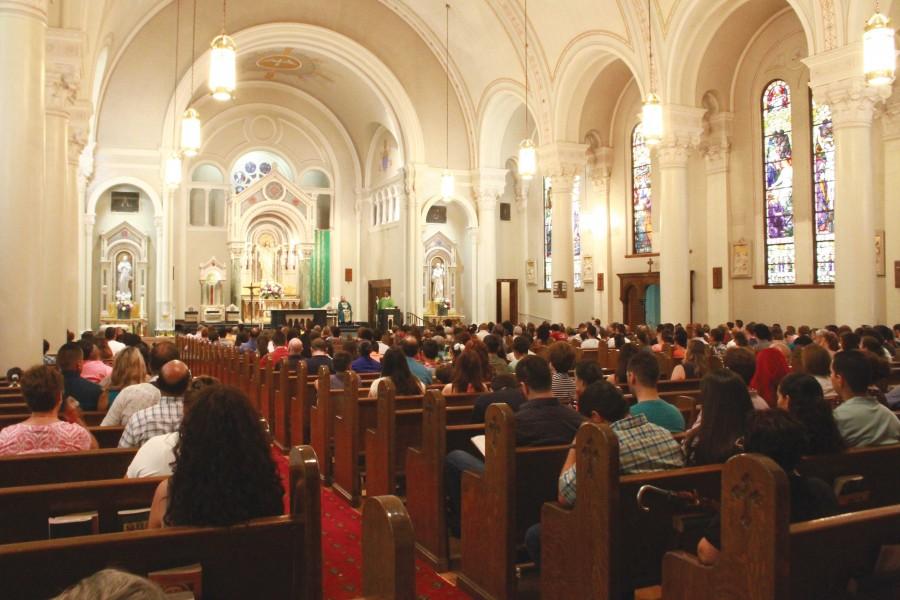Often labeled as murderers and sinners by some, and as individuals exercising their reproductive rights by others, women around the world have been given a new complexity to add to the ever-changing issue of abortion.
Last Tuesday, Pope Francis shocked the Catholic world by announcing that all priests would be granted permission to forgive women who had committed the “sin of abortion” beginning in December.
December marks the beginning of the “Year of Mercy,” a special year on which the Catholic Church is extending its call to bring people back to the church to find mercy.
“It’s a year that the Pope has declared in order to call all people to come back to the church and also to find mercy,” said Father Andy Martinez, who works with Catholic Campus Ministry at the University of Texas at El Paso’s Newman Center. “This means that those who have fallen away from the church can return, but can also be welcomed with mercy.”
When asked about the pope’s announcement regarding abortion, Martinez explained that this was something that could be done before by priests, at least in the United States.
“Speaking in reference to the U.S., all priests have always been given this permission (forgiving women for an abortion),” Martinez said.
The announcement was polarizing as it was welcomed by some groups and completely rejected by others, including members of the Catholic faith.
Amongst those who voiced negative opinions, some expressed confusion as to the reason why women couldn’t normally be forgiven. Martinez explained that in the Catholic faith there are different kinds of sin, and that abortion falls in the category of a “mortal sin.”
“Mortal sin is doing harm to yourself, but also to someone else, and in this case, when a woman is pregnant we believe that life begins at conception,” Martinez said. “Many people won’t agree with us, and it’s ok, but it’s our belief that we have respect in the dignity of life.”
Although mortal sins represent a major transgression in the Catholic faith, Martinez pointed out that they could be forgiven.
Claudia Yoli, member of The Texas Freedom Network, pointed out that the pope’s announcement might coincide with a trending pattern seen with Millennials.
“If you look it up, there are different reports that show that Millennials are pro-choice,” Yoli said. “It shows a pattern that the young people in this country are changing and have different views.”
A study conducted by the Public Religion Research Institute, shows that six in 10 Millennials think abortion should be legal in all or most cases. However, data also showed that 50 percent of Millennials think of abortions as a morally wrong act.
Although the data shows that issues on abortion are complex for Millennials, it also showed that in the hierarchy of issues faced by the country, it ranks below four others. Amongst Millennials, 75 percent believe the economy is the number one issue, 43 percent said immigration, 42 percent said the environment and after a steep drop, 29 percent believe abortion is the top issue.
In contrast, Americans older than 55 are found to be in the exact opposite of the spectrum, seeing abortion as morally wrong and opposing legalized abortion by 57 percent and 43 percent.
UTEP student and senior Spanish major, Africa Deleon, expressed joy in the announcement from the pope and believed that despite the issue of abortion, this is something that will bring peace to a lot of women.
“It will make it easier for Catholic women to live with themselves if it’s something that keeps tormenting them,” Deleon said. “It may also open a door for other women, who may not be religious, but may find that this could help them cope with their choices.”
Deleon also said that this shows that the church is listening and paying attention to the new generation, who are stating to become prevalent in the world.
“It shows religion becoming more accepting and growing with the times,” Deleon said. “Women who make these hard choices can now turn to their religion for help without feeling ostracized.”
Alonso Moreno may be reached at [email protected].






